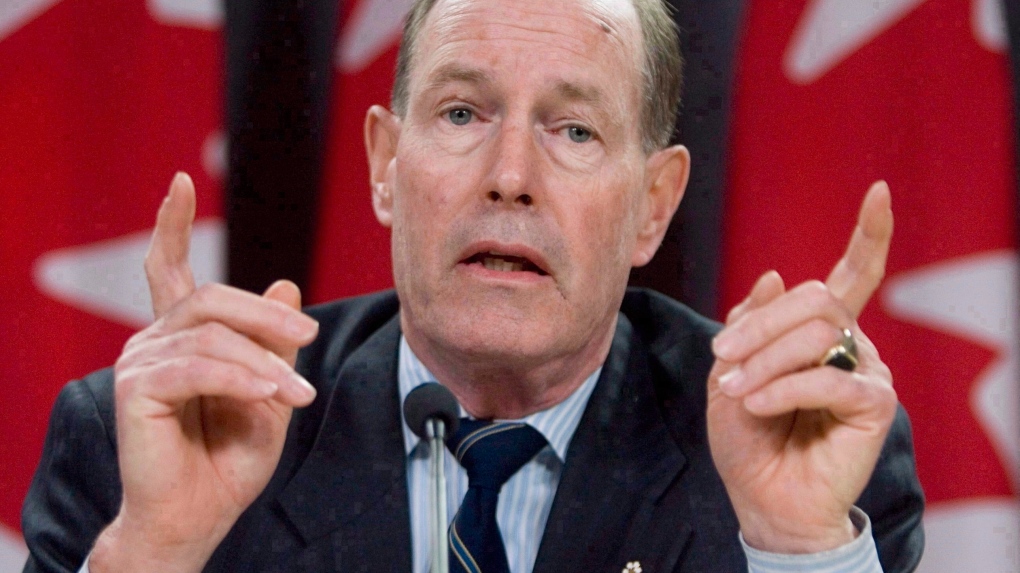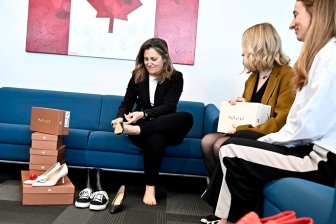News
Lag and Lootboxes. Ensuring Fairness in Multiplayer Games


|
|
Believe it or not, ensuring fairness in online multiplayer games is a field of scientific study but it may not be immediately obvious why. After all, the games we’ve been playing since the 1980s have all been constructed with rigid, unbreakable rules. Try as you might, there’s (usually) no way to walk straight through a wall or take down bosses with a single shot. So, why isn’t this true online, as well?
The pursuit of this strange part of science began way back in 2006, an era when Counter-Strike, RuneScape, and World of Warcraft were the most popular online games. Call of Duty, now the archetypical multiplayer game, was only on its third entry (there are now 19), while some of today’s most popular titles, like League of Legends and Rocket League, had barely reached the drawing board.
A paper on Research Gate entitled Fairness and Playability in Online Multiplayer Games delved into why games with strict programming sometimes fail simply because of a connection to the internet. It explains how “differences in […] delays” are the culprit in these circumstances, a fancy phrase for what gamers know as lag, packet loss, high ping, and slow broadband speeds.
What do these problems indicate? Ping is a measure of time (in milliseconds) that describes how long it takes for a message to travel from your computer to the game’s server, while packet loss occurs when that message doesn’t arrive at all. The term lag is used as a general term to cover both of these issues but it’s mostly meaningless from a tech support perspective.
A ping between 20 and 40ms keeps most games running smoothly. With longer times, a problem known as rubberbanding may occur, in which the player’s avatar appears to teleport around the map as the server tries to pinpoint their actual location. As far as fairness is concerned, this can result in missed shots and other cues, and lead to the player being ejected from a match.
Unfortunately, this is a problem that’s difficult to deal with, as there’s so much variation between how data is sent and received around the world that a one-size-fits-all solution isn’t really feasible. In fact, most FAQ pages and support forums tend to turn the issue back on the player, asking them to check their setup. Troubleshooting for Rocket League insists on a wired internet connection, for instance.
Loot Boxes
Of course, there is more to an equitable gaming experience than actually connecting to the server so let’s take a look at some of the aspects of fairness that developers actually can control. One of the more beneficial developments involves blockchain technology. Certain kinds of experiences, especially in the casino industry, can be configured in a way that allows for provably fair outcomes in encounters of chance.
A section on the Bitcoin Casino Wiz website describes this concept as giving the player the opportunity to check that the hand they were dealt (for example) was predetermined, random, and not influenced by the casino. The algorithm used to produce the final result is usually available to view after the game concludes, too. Oddly enough, this can allow for difficulty levels to be implemented.
While this may not sound as relevant to multiplayer gaming as an internet connection, the addition of random loot box rewards in titles like Apex Legends does mean that developers are now obligated to provide a similar set of assurances to players. Microsoft, Nintendo, and Sony recently took steps to include casino-style odds alongside every instance that loot boxes are offered, according to a report by the Games Industry site.
Due to a possible future in which Web3 technologies like NFTs are integrated into video games, it’s entirely feasible that this kind of blockchain integration could assist when it comes to proving the fairness of certain gameplay aspects. After all, plenty of multiplayer titles, mobile apps, and MMOs utilize similar mechanics to casinos, such as the exchange of real money for a chance at receiving something.
There will always be resistance to the involvement of experimental, high-technology ideas in gaming, as plenty of people still prefer the simple, offline experiences of the 1980s and early 1990s. The reality is that games in this category might be considered rare outside the indie scene today, and developers have to continue to find ways to make their products more enticing to consumers.
In any case, fairness isn’t just about rolling the same dice for each player. It’s a complex mix of connectivity, odds, and accountability.
News
Budget 2024 sets up a ‘hard year’ for the Liberals. Here’s what to expect – Global News
The Liberal government faces a slowing economy and an uphill battle in the polls as it prepares to table its 2024 federal budget on Tuesday.
Global News spoke to Canada’s former parliamentary budget officer ahead of April 16, who said he’s expecting a tight spending plan with little room for surprises or hotly demanded relief on cost-of-living issues for Canadians.
Heading into the third budget under the government’s current mandate, Justin Trudeau’s Liberals have been on a cross-country tour plugging a series of measures that will be included in the coming year’s spending plans.
Since late March, the Liberals have announced just over $37 billion in new spending and loans planned for the federal budget, according to a Global News analysis. Some of the Liberal announcements have spending spread out over multiple years, while other items come with little to no price tag attached.

A significant amount of spending is tied to the Canadian housing market, in the form of either incentives to build more supply or policy changes to support renters and help prospective buyers get their first rung on the property ladder. Those include promises to help renters build their credit scores, changes to savings plans and amortization rules aimed at promoting affordability and billions in incentives to get more shovels in the ground on new builds.
Outside the housing market, Ottawa is planning to introduce a national lunch program and promised billions for expanded child-care access, boosts to the country’s defence spending and artificial intelligence industry, and a new youth mental health fund.
All the while, Finance Minister Chrystia Freeland has pledged that the Liberals will not increase the federal deficit past its current $40.1-billion levels.
Liberals have little fiscal room to ‘manoeuvre’: former PBO
Kevin Page, Canada’s first PBO and the president of the Institute of Fiscal Studies and Democracy at the University of Ottawa, tells Global News the Liberals are facing significant headwinds in trying to keep the deficit stable while also meeting the needs of Canadians.
Canada’s economy may have avoided tipping into a recession in 2023, but growth remains weak under the weight of higher interest rates from the Bank of Canada. That means the federal government is seeing lower revenues flowing into its coffers at the same time its debt is becoming more expensive.
“Their challenge is, they just don’t have a lot of fiscal room to manoeuvre,” Page explains.
An RBC economics report released last week also warns of consequences for Canadians if governments are tempted to stray from their fiscal anchors, whether that be maintaining the overall size of the deficit or keeping a steady debt-to-GDP ratio.

Governments, federal or provincial, keeping to their fiscal anchors instils “confidence in voters and financial markets,” author Rachel Battaglia, an economist with RBC, wrote.
Canada’s sovereign triple-A credit rating heading into the 2024 federal budget is “strong,” Battaglia said, but the country risks a downgrade if Ottawa were to stray from its fiscal anchors.
A hit to this key credit rating would trickle down to large banks, and by extension, the rates paid by their customers on products like mortgages, according to Battaglia.
“Even though deeper deficits and higher associated sovereign borrowing costs may feel like a distant problem for many Canadians, the impact has the potential to trickle down to most households and businesses,” Battaglia wrote.
“Therefore, all Canadians have a stake in seeing the federal government meet its fiscal targets.”
Another tactic to increase revenues when economic growth is stalling is by hiking or introducing new taxes. While Freeland has pledged that no new taxes will be levied against the middle class in the 2024 budget, she has been mum on whether taxes on wealthier individuals or corporations could be in the cards.
Little room for surprises in the budget
One tailwind benefiting the federal government this budget season is that the first quarter of real GDP growth in Canada is so far coming in stronger than forecast in Ottawa’s fall economic statement last November.
That’s giving the Liberals a bit more spending room than they would’ve otherwise had amid pressures to maintain the deficit, Page says. But he expects this bandwidth will have been mostly eaten up with the already announced measures, and he does not expect any new big-ticket items will be unveiled on April 16.
Ipsos polling conducted exclusively for Global News last month shows the top demand from voters heading into the federal budget is for financial relief from the rising cost of living.
The most commonly cited priorities from Canadians surveyed by Ipsos about the upcoming 2024 federal budget.
Global News / Ipsos
Some 44 per cent of those surveyed in March said they wanted help with rising daily expenses, followed by 38 per cent who prioritized health-care investments and 33 per cent asking for a reduction in personal taxes.
“Pocketbook issues dominate the list of the things that Canadians want to see addressed in the budget,” Sean Simpson, senior vice-president at Ipsos Global Affairs, told Global News earlier this month.
But Page sees little room for those kinds of relief efforts in the 2024 budget if the Liberals want to maintain the deficit.
The best the Liberals can do is make it look to Canadians like they’re “trying their best” when it comes to acting in a fiscally responsible way while providing support to the most vulnerable, he says.
“I don’t think we’re going to see much new that can make a big difference for families in 2024 with respect to affordability,” Page says.
“It’s possible we see some small measures, but they will be small and targeted.”
The already announced efforts to get more homes built are “incremental steps” to solving the housing crisis, but Page says the country is “millions of units short” of what’s needed to restore affordability. Even efforts to put more housing supply in the pipeline will take years before homes are move-in ready, he says.
“It’s not something that we’re going to solve in the 2024 budget,” Page adds.
Liberals could have better prospects in 2025
Ipsos’s latest political polling from March 28 has the Conservatives up 18 points over the incumbent Liberals, who are themselves only three points ahead of the NDP. Simpson said the Liberals will need to “stop the bleeding” to avoid falling into third place behind the NDP.
A federal election is currently slated for no later than October 2025, but could be called earlier if the Liberals fail a confidence vote or bring down the government themselves.
Page expects a “pretty thin budget” this year, with some major items reserved for a hopeful pre-election budget next year.
But if the Liberals do get to put up another budget before the next federal election is called, Page thinks the incumbent party might find better fortunes in 2025.
By that point, many economists, as well as the Bank of Canada, forecast that the economy will be starting to recover amid anticipated cuts to the central bank’s benchmark interest rate.

This time next year, the Liberals might find rising revenues will boost their electoral prospects and give them more ammunition to deliver a 2025 budget that would have a better chance at restoring voter confidence in the government, Page says.
“The government knows it’s going to be a hard year economically for Canadians and probably a hard year politically,” he says. “But I think they’re hoping that this will rebalance when we get to 2025.”
– with files from Global News’ Sophall Duch
More on Money
News
Federal budget will include tax hike for wealthy Canadians, sources say – CBC News
Tuesday’s federal budget will include a tax increase on the richest Canadians, sources tell Radio-Canada.
It’s not clear exactly what form the tax measure will take but senior Liberal sources have told Radio-Canada that it will affect less than 1 per cent of Canadians.
Prime Minister Justin Trudeau and his ministers have been on a countrywide tour in recent weeks to make a series of pre-budget announcements.
Those announcements add up to more than $38 billion in commitments over a number of years. Because $17 billion of those commitments involve loan-based programs, about $21 billion could hit the government’s bottom line directly.
Since much of the spending side of the budget is already public, the focus on tomorrow’s budget likely will turn to how the government intends to pay for the new programs.
Finance Minister Chrystia Freeland has ruled out tax increases on the middle class.
“We remain absolutely committed to being there for hardworking middle-class Canadians, and then we won’t raise taxes on them,” she said last week.
On the eve of Tuesday’s federal budget, sources have told Radio-Canada that it will include a tax increase for wealthy Canadians. It’s not clear what it will exactly be, but senior Liberal sources say it will affect less than one per cent of Canadians.
The Trudeau government has made tax changes that target wealthier Canadians in the past.
In last year’s federal budget, the Liberals introduced significant changes to the alternative minimum tax rate. Those changes affected Canadians who earn more than $300,000 per year.
The House of Commons finance committee has recommended the federal government implement a windfall tax on companies in all sectors that generate “oversized” profits during crises, as well as grocery giants, to fund another doubling of the GST rebate.
News
Freeland 2024 budget 'likely to be the worst' in years: Dodge – CTV News


Without having seen it, former Bank of Canada governor David Dodge believes that Tuesday’s 2024 federal budget from Deputy Prime Minister and Finance Minister Chrystia Freeland is “likely to be the worst budget” in decades.
“I think this is likely to be the worst budget since the [then-finance minister Allan] MacEachen budget of 1982, in the sense of pointing us in the wrong direction as to how we go about raising the incomes of Canadians and actually making Canadians feel better over the medium term,” Dodge said in an interview on CTV News Channel’s Power Play with Vassy Kapelos.
In a time of high interest rates and inflation, the 1982-83 federal budget, under then-prime minister Pierre Elliott Trudeau, became the object of political fury over spending, taxation, and wage restraint measures within it.
Dodge, who was governor from 2001 to 2008, was referencing the strong indications that in order to help finance the nearly $40 billion in pre-announced new spending without raising the deficit, the federal government may impose some form of individual wealth tax or excess profit tax on wealthy corporations.
Freeland will present the budget in the House of Commons on Tuesday afternoon, vowing a plan centred on “generational fairness.”
“Something doesn’t add up. I think there’s a big question of how much of all that promised spending is going to be booked into this year and next year, and how much is going to be deferred?” Dodge said.
“I think there is a very real possibility that they’ll do exactly the wrong thing and tax the very folks and the very corporations that are going to make the investments that will actually raise income over time.”
His concern is that wealth taxes would slow growth, and his preference would be for the federal government to “increase saving” rather than increase taxes.
In the interview, Dodge also expressed doubt about the efficacy of the Liberals’ plans aimed at addressing the supply side of Canada’s housing crisis.
On Monday, while addressing a largely business-centric crowd that’s calling on the government to spur economic growth and not impose new taxes that could deter investors, Prime Minister Justin Trudeau made no mention of any wealth-targeting plans that may be afoot.
The government’s position is that the country is at a “pivotal moment” that requires urgent investment, including in areas of affordability concerning millennial and Generation Z voters, such as housing and jobs.
“Millennials and Gen Z now make up the majority of Canada’s labour force. They are our economy … They now feel like middle class stability is out of reach. We need to meet this moment, because that can’t be allowed to happen,” Trudeau said. “The economy is only as strong as it is optimistic.”
You can watch the full interview with David Dodge in the video player at the top of this article
-
Media17 hours ago
DJT Stock Plunges After Trump Media Files to Issue Shares
-
Business16 hours ago
FFAW, ASP Pleased With Resumption of Crab Fishery – VOCM
-
Media16 hours ago
Marjorie Taylor Greene won’t say what happened to her Trump Media stock
-



 Tech24 hours ago
Tech24 hours agoHow funny? Australian researchers use AI to generate cartoon captions – Digital Journal
-
Media15 hours ago
Trump Media stock slides again to bring it nearly 60% below its peak as euphoria fades – National Post
-
Business17 hours ago
Javier Blas 10 Things Oil Traders Need to Know About Iran's Attack on Israel – OilPrice.com
-
Business22 hours ago
A government mortgage policy that makes sense – with one glaring question – The Globe and Mail
-



 Politics17 hours ago
Politics17 hours agoIn cutting out politics, A24 movie 'Civil War' fails viewers – Los Angeles Times












